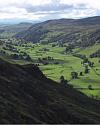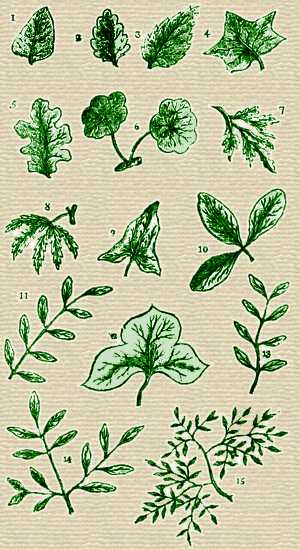 (source)
(source)
|
John Wilson
(1696 - 15 Jul 1751)
English botanist who was the first to attempt a systematic arrangement of the indigenous plants of Great Britain in the English language
|
John Wilson
Excerpt from 'From A Country Parsonage'
in The Gentleman's Magazine (1891)
by “A Country Parson”
[p.52] ...Wilson was born and lived in the dale, and we were very proud to think that he wrote the first great work on English Botany. This worthy man came upon the scene when botany, in its best sense, had made but little progress. He was one of those naturalists who did much to place the science on the broad scientific basis upon which it now rests. His predecessors had mostly comprehended the subject as it taught them of the herbs and simples of the wood,
Blue-vetch and trilium, hawk-weed, sassafras,
Milkweeds and murky brakes, quaint pipes and sundew.
Like his predecessors, too, he clung fondly to the old English names, and loved to wrap about the flowers the attributes his fathers had done. Their knowledge of “herbalism” had been profound, but he would have none of it.
Wilson was a truly remarkable man; and although there is all that intenseness and simplicity anent his dealings with nature that there had been in connection with the old workers who preceded him, yet his work is of an eminently scientific character. They were not always infallible observers, and frequently tripped in their facts; Wilson rarely did so. He found botany as a science a veritable maze, all without a plan; but at his death he left it somewhat systematised.
I have said that Wilson was born in our valley, and may add that he came of pious yeomen folk, who were poor enough, except in the possession of many stern virtues. The primitive dale must have proved a very paradise to him, as it was so secluded, and certainly had never been invaded by science prior to his coming. This pleasant environment did not last long. In the fulness of his boyish enthusiasm he roamed over the hills like a partridge. The very isolation referred to, and which was a merit in one way, rendered the people a prey to the grossest superstition.
Our botanist made long, lonely journeys, often at night, among the hills and. woods and by the sea. The fell folk said that the nightly calling which [p.53] took him so far afield might be honest; but they shook their heads, and some even ventured to say that he was a “wise man”—a dealer in mysteries, and given to dark sayings.
It was probably this evil repute which gathered around him, and the want of books, that caused him to leave the dale and go to a small market town about ten miles off. And, maybe, this enforced circumstance was well. He had studied long and hard in his native valley, and there had had abundant and rare material. At home he had only an old “Herbal,” which he well knew was as full of inaccuracies as superstition. Now he had good guides, and found himself within reach of the best books on the subject, and came into connection with those who had like interests to himself.
Some of these were really remarkable workers—workers who stood out far above the common run of men. They put before Wilson the then standard works of his own pet subject, and of the contents of these, with his already acquired knowledge and native understanding, he quickly made himself master. But none of the works to which he had access were so good as the one he was destined to write. They were styled “scientific”; but the first law of science is order, and, as yet, there was only chaos. Our botanist was the great mind born to perceive and exhibit such order from the then ascertained elements of botany so far as collected.
I need only further say that Wilson laboured hard for many years, working at his book the while he pursued his trade. When it was published it came out in English, and not in Latin. The author had set out with a well-defined plan, and executed it in an admirable manner. It was a strong and original work, a very monument of accurate observation and the genius of hard work. The botanist's early wanderings among the fells were stamped upon every page, and Wilson was wont to say that he never could have succeeded without that early life which he loved so well. And so our greatest “worthy” produced his Synopsis of British Plants.
- Science Quotes by John Wilson.
- 15 Jul - short biography, births, deaths and events on date of Wilson's death.
- John Wilson - biography from The Gentleman's Magazine (1811).
- John Wilson - short biography from The Year Book of Daily Recreation and Information (1832).





